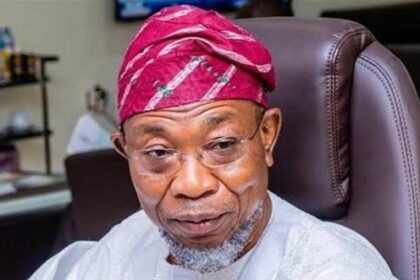Nobel laureate, Prof. Wole Soyinka, has said another Democracy Day may not be celebrated in Nigeria if the system of government is not decentralised.
Soyinka said this during an interview with Arise News which focused on the June 12 Democracy Day that was celebrated on Saturday.
The Nobel Laureate lamented that the country is on a slide, as he advised President Muhammadu Buhari to listen and take action against the challenges which are causing people to demonstrate.
“And that is what’s happening to people on the streets. That’s why they are moving, that’s why they are demonstrating; that’s why they are defying even threats from the police and the government – If you demonstrate, we will do this, if you do this, we will deal with you, we will talk to you in language which you understand – it does not wash with anybody any longer. Because if a nation is on a suicide slide, the people who feel that they do not deserve that kind of suicidal plunge have a right to say they are getting off this plane before it nosedives,” he said.
When asked if Nigeria can continue as one, Soyinka responded, “Not if it continues this way. Not if it fails to decentralise. If Nigeria fails to decentralise, and I mean to decentralise as fast as possible, manifestly and not as rhetoric, then Nigeria cannot stay together.
“Again, it is not Wole Soyinka saying this. Everybody has said it: ex-heads of state have said it; politicians have said it; analysts have said it; economists have said it, and sometimes we get tired.
“I am saying this whole nation is about to self-destruct and I am not the only one saying it, except Buhari and his government listen and take action, we would not celebrate another Democracy Day come next year.
“Take for instance the position of the Southern governors on open grazing, at least 50 per cent of a nation are saying that within this democratic dispensation we are operating, we are saying on behalf of our people, we do not want open grazing anymore and then somebody sits in Aso Rock and says to them, I am instructing my Attorney-General to dig up some kind of colonial law, which arbitrated between farmers and herders.
“This means that he is not listening to what the people are saying, he is not listening to what the government representing them is saying. When I listen to things like that, I really despair. His last interview was instructive, not that there was anything new in it, one was just hoping that this government has transcended that kind of partisan thinking.”


